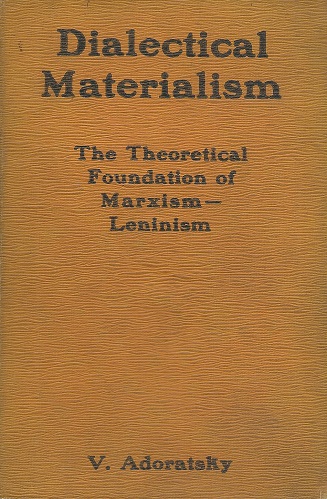

In this abstract, Marx first critiques speculative philosophy using his dialectical method. Marx describes his philosophy of political economy. Engels provides a brief history, and then an overview of political economy. An outline of the materialist conception of history, which is a result of their philosophy of dialectics.Įngel's Review of A Contribution to the Critique of Political economy. Preface of A Contribution to the Critique of Political Economy.
#Marxian dialectic series
This long series of abstracts covers the following topics: (1) Marx & Engels task to relate dialectics to nature (2) Historical overview and basic concepts (3) Critique of Idealism (4) Motion is the mode of existence of matter (5) Eternal Truth (6) Freedom is the insight into necessity (7) Mathematics & Chemistry (example of quantity to quality) and (8) The historical process of negation. A short and simplified explanation of how Marxist and Hegelian dialectics differ, generally, in the difference of being materialist as opposed to idealist.Īnti-Duhring. Practical materialism is the chief difference between Marxist and Hegelian dialectics.Īfterward to the Second German Edition. In this essential work, Marx and Engels lay the foundations for a philosophy of materialism that is practical. And the resulting clash would create a new synthesis – that in turn would be challenged at some point.Theses on Feuerbach. The ruling class as the thesis would be confronted by a highly disgruntled antithesis in the form of the exploited class. When the social structure of a society could no longer grow the “productive forces”, it was time to break with that society. Marx explained how feudalism or capitalism could initially take humanity forward but would then be constrained by their own inner contradictions. So, in dialectical thinking you have the idea that quantity can transform in to quality (I’ll explain this more in my blog posts). He took key dialectical concepts and applied them in new ways. For Marx, however, the dialectical structure of the world is a complex empirical fact about the nature of material. Sure there were ideas – but these were reflections of material realities. Instead, Marx saw the dialectics in human history as a struggle between different social classes. This idea of Marxian dialectical materialism differs from metaphysics. So how did Marx approach dialectics? His decisive move was to reject the Hegelian method that viewed dialectical progress as a battle of ideas. They believe that opposing ideas can exist at the same time and the clash of these ideas creates progress. It is primarily because orthodox Marxism is dependent on the dialectical. But dialecticians embrace contradiction with enthusiasm. what role does Hegel play in Lukcs interpretation of Marx and Marxism. Traditionally, logicians didn’t much like contradiction. Every synthesis contains within it the seeds of its own destruction as it becomes a thesis to be overthrown by an antithesis and succeeded by a new, higher synthesis. What was once viewed positively becomes a negative. Hegel viewed this entirely as a battle of ideas raging through human history as a quest for ultimate truth. But then the synthesis would become a new thesis to be overthrown as it were. Against it would be an opposing “antithesis”. What he meant by this was that a “thesis” would be put forward. The German philosopher Hegel, who exercised a huge influence on the young Marx, came up with the idea of successive dialectic triads. Theories in science are the basis for practical outcomes but eventually give way to superior theories that take human knowledge to a new and higher level. It can be argued that scientists adopt a dialectical method when they posit a new theory and invite their peers to review it – shooting it down if necessary. Poor Socrates, for example, was forced to drink deadly poison for the crime of corrupting the youth. This was hugely liberating if sometimes viewed as dangerous by those in authority. Through reasoned argument, if sometimes heated, they would hope to arrive at something approaching the truth. Their method of discourse – over an agreeable goblet of wine – was to come at each other with differing opinions.

What made the Greeks so unique compared to other civilisations was their willingness to define the world in terms of natural phenomenon as opposed to the whims of deities. We should start by popping back to ancient Greece and all those philosophers trying to uncover underlying truths about the world. This theory is a key building block of Marxism explaining Marx’s attitude to history, the nature of human existence and why socialism through revolution is (almost) inevitable – or at least necessary. Let me try and unlock the meaning of Dialectical Materialism in one page.


 0 kommentar(er)
0 kommentar(er)
